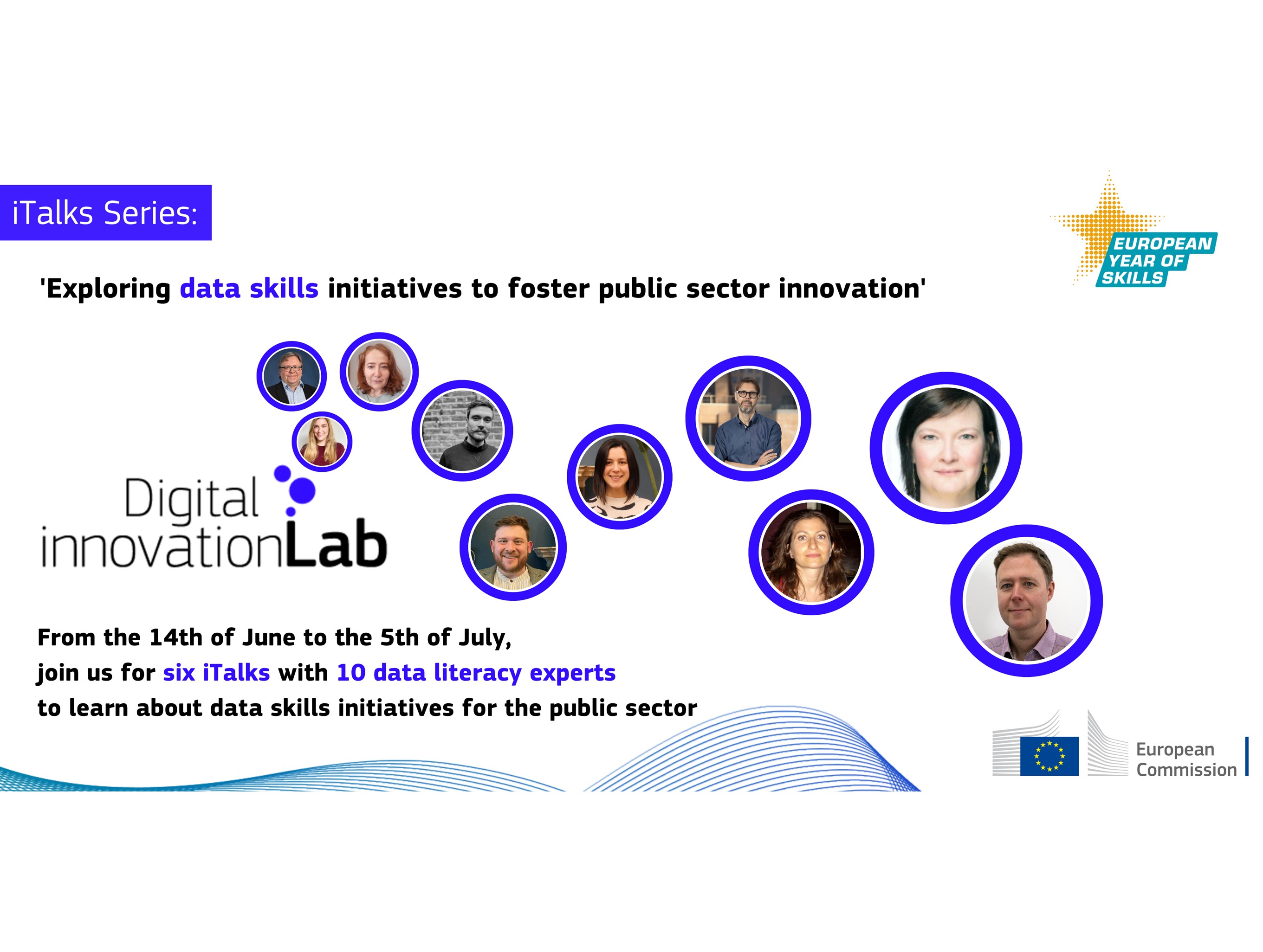592 resultater fundet
Skip results of view Nyheder

Across Europe, innovative open data sewage initiatives are emerging to improve public health. Sewage carries a wealth of information about human health, including data on disease outbreaks, drug use, and environmental pollution. By analysing this data, public health officials can detect and respond to health threats more quickly and effectively. As an example, the Netherlands monitors sewage to trace the coronavirus. The project started in February 2020 by the National Institute for Public Health and Environment (RIVM) and has grown to cover over 320 sewage treatment plants, providing early

The digital era brings an increasing demand for digital and data skilled professionals. To draw attention to these new skills and understand how different stakeholders aim to address the current lack of these skills in the public sector, the Digital Innovation Lab , also known as iLab, hosted a series of six sessions with experts on ‘ Exploring data literacy initiatives to foster public sector innovation ’ throughout the months of June and July. The first session ‘Data literacy for European Public Administration’ was held on the 14 th of June and highlighted data literacy initiatives for

On Monday 17 July, a report on the implementation of the 2020 Berlin Declaration on value-based digital government was published. Digital and interoperable public services are instrumental for the EU to remain resilient, competitive and innovative. A major driver for successfully digitalising European society and the economy is fair, inclusive, open and trusted digital services. The Berlin Declaration is a commitment based on fundamental rights, democratic values and value-based digital government to shape a human-centred digital transformation and interoperability and to create a digital

The ninth course of the restructured data.europa academy called ‘ Including data in your communication ’ delves into the communication of findings, research and complex topics in an enticing way. Learn how to create data visualisations and meaningful, interactive maps that take your audience on a journey. The first lesson ‘ Beyond the pdf ’ covers three webinars to learn how to create a design process to develop a publication that incorporates data visualisations and data-driven storytelling. Data visualisations can be a vital channel to effectively interpret and analyse complex concepts

Today we celebrate World Youth Skills Day to encourage young people all around the world to obtain skills for personal success and make their dreams come true. This year highlights the essential role of teachers, trainers and other educators in providing skills for youth to transition to the labour market and actively engage in today’s world. The right skills bring several benefits, such as better job opportunities and broader possibilities to fully engage in society. This is why the European Commission has designated2023 as the European Year of Skills . It aims to address skills shortages in

As healthcare is becoming more expensive and the world is becoming increasingly environmentally conscious, there is an opportunity for more proactive, preventative care. Improving air quality in European cities can save European citizens from the negative health impacts equivalent to several cigarettes a day. Combining datasets from OpenAQ and OpenAIRE can lead to powerful insights into air quality, which can help formulate and execute effective measures. OpenAQ collects real-time air quality data from around the world and OpenAIRE provides access to open research data and publications from

A sustainable data cycle needs a set of principles and practices, as well as effective data governance. The eighth course of the restructured data.europa academy called ‘ Understanding data governance with open data ’, dives deeper into how governmental and legal considerations underpin and influence open data. In addition, the course highlights the role of data.europa.eu in different data spaces and delves into the added value of data governance in the public and private sectors. Data governance sets internal standards to improve how data is gathered, stored, processed, and disposed of
On Friday 30 June 2023 from 10.00 to 11.30 CET, the data.europa academ y hosted the fourth and final webinar of the webinar series ‘Stories of Use cases’. The series focused on EU political priorities and the potential of open data in achieving strategic priorities and addressing societal, economic and governmental issues. Previous data.europa academy webinars in this series highlighted the European Green Deal , a new push for European democracy , and promoting a European way of life and an economy that works for all people . The final session presented how open data supports Europe in
On Friday 14 July 2023 from 10.00 to 11.30 CET, the data.europa academy will host a webinar on the portal dimension following the Open Data Maturity (ODM) report 2022. This is the third webinar in a series of webinars on the ODM report 2022. The first webinar, that took place on 10 February 2023, introduced the Open Data Maturity assessment, provided insights into the level of maturity of the 35 participating countries in Europe and presented the main trends. During this webinar, the four dimensions of ODM were introduced: quality, portal, policy and impact. The second webinar in the ‘Open

The seventh course of the restructured data.europa academy called ‘ Improving open data and metadata quality’ will dive into providing and collecting high-quality quality data and metadata. Through webinars, reading materials and e-learnings, you will learn how to unlock the benefits of open data, understand the role of data.europa.eu, follow guidelines and navigate the opportunities and challenges of citizen-generated data. To fully leverage the value of open data, it is important to clean the data initially. In the first lesson ‘ Cleaning open data’ you will learn how to recognize data
